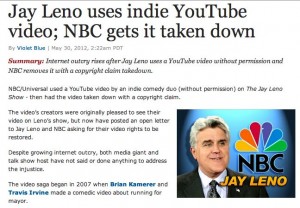New York Plans to Ban Sale of Big Sizes of Sugary Drinks

Mr. Bloomberg on Wednesday with Linda Gibbs, deputy mayor for health.
By each soda is the amount of sugar in it.
By each soda is the amount of sugar in it.
By MICHAEL M. GRYNBAUM
Published: May 30, 2012 45 Comments
New York City plans to enact a far-reaching ban on the sale of large sodas and other sugary drinks at restaurants, movie theaters and street carts, in the most ambitious effort yet by the Bloomberg administration to combat rising obesity.
Readers’ Comments
Share your thoughts.
The proposed ban would affect virtually the entire menu of popular sugary drinks found in delis, fast-food franchises and even sports arenas, from energy drinks to pre-sweetened iced teas. The sale of any cup or bottle of sweetened drink larger than 16 fluid ounces — about the size of a medium coffee, and smaller than a common soda bottle — would be prohibited under the first-in-the-nation plan, which could take effect as soon as next March.
The measure would not apply to diet sodas, fruit juices, dairy-based drinks like milkshakes, or alcoholic beverages; it would not extend to beverages sold in grocery or convenience stores.
“Obesity is a nationwide problem, and all over the United States, public health officials are wringing their hands saying, ‘Oh, this is terrible,’ ” Mr. Bloomberg said in an interview on Wednesday in the Governor’s Room at City Hall.
“New York City is not about wringing your hands; it’s about doing something,” he said. “I think that’s what the public wants the mayor to do.”
A spokesman for the New York City Beverage Association, an arm of the soda industry’s national trade group, criticized the city’s proposal on Wednesday. The industry has clashed repeatedly with the city’s health department, saying it has unfairly singled out soda; industry groups have bought subway advertisements promoting their cause.
“The New York City health department’s unhealthy obsession with attacking soft drinks is again pushing them over the top,” the industry spokesman, Stefan Friedman, said. “It’s time for serious health professionals to move on and seek solutions that are going to actually curb obesity. These zealous proposals just distract from the hard work that needs to be done on this front.”
Mr. Bloomberg’s proposal requires the approval of the Board of Health, a step that is considered likely because the members are all appointed by him, and the board’s chairman is the city’s health commissioner, who joined the mayor in supporting the measure on Wednesday.
Mr. Bloomberg has made public health one of the top priorities of his lengthy tenure, and has championed a series of aggressive regulations, including bans on smoking in restaurants and parks, a prohibition against artificial trans fat in restaurant food and a requirement for health inspection grades to be posted in restaurant windows.
The measures have led to occasional derision of the mayor as Nanny Bloomberg, by those who view the restrictions as infringements on personal freedom. But many of the measures adopted in New York have become models for other cities, including restrictions on smoking and trans fats, as well as the use of graphic advertising to combat smoking and soda consumption, and the demand that chain restaurants post calorie contents next to prices.
In recent years, soda has emerged as a battleground in efforts to counter obesity. Across the nation, some school districts have banned the sale of soda in schools, and some cities have banned the sale of soda in public buildings.
In New York City, where more than half of adults are obese or overweight, Dr. Thomas Farley, the health commissioner, blames sweetened drinks for up to half of the increase in city obesity rates over the last 30 years. About a third of New Yorkers drink one or more sugary drinks a day, according to the city. Dr. Farley said the city had seen higher obesity rates in neighborhoods where soda consumption was more common.
The ban would not apply to drinks with fewer than 25 calories per 8-ounce serving, like zero-calorie Vitamin Waters and unsweetened iced teas, as well as diet sodas.
Restaurants, delis, movie theater and ballpark concessions would be affected, because they are regulated by the health department. Carts on sidewalks and in Central Park would also be included, but not vending machines or newsstands that serve only a smattering of fresh food items.
At fast-food chains, where sodas are often dispersed at self-serve fountains, restaurants would be required to hand out cup sizes of 16 ounces or less, regardless of whether a customer opts for a diet drink. But free refills — and additional drink purchases — would be allowed.
Corner stores and bodegas would be affected if they are defined by the city as “food service establishments.” Those stores can most easily be identified by the health department letter grades they are required to display in their windows.
The mayor, who said he occasionally drank a diet soda “on a hot day,” contested the idea that the plan would limit consumers’ choices, saying the option to buy more soda would always be available.
“Your argument, I guess, could be that it’s a little less convenient to have to carry two 16-ounce drinks to your seat in the movie theater rather than one 32 ounce,” Mr. Bloomberg said in a sarcastic tone. “I don’t think you can make the case that we’re taking things away.”
He also said he foresaw no adverse effect on local businesses, and he suggested that restaurants could simply charge more for smaller drinks if their sales were to drop.
The Bloomberg administration had made previous, unsuccessful efforts to make soda consumption less appealing. The mayor supported a state tax on sodas, but the measure died in Albany, and he tried to restrict the use of food stamps to buy sodas, but the idea was rejected by federal regulators.
With the new proposal, City Hall is now trying to see how much it can accomplish without requiring outside approval. Mayoral aides say they are confident that they have the legal authority to restrict soda sales, based on the city’s jurisdiction over local eating establishments, the same oversight that allows for the health department’s letter-grade cleanliness rating system for restaurants.
In interviews at the AMC Loews Village, in the East Village in Manhattan, some filmgoers said restricting large soda sales made sense to them.
“I think it’s a good idea,” said Sara Gochenauer, 21, a personal assistant from the Upper West Side. Soda, she said, “rots your teeth.”
But others said consumers should be free to choose.
“If people want to drink 24 ounces, it’s their decision,” said Zara Atal, 20, a college student from the Upper East Side.
Lawrence Goins, 50, a postal worker who lives in Newark, took a more pragmatic approach.
“Some of those movies are three, three and a half hours long,” Mr. Goins said. “You got to quench your thirst.”











